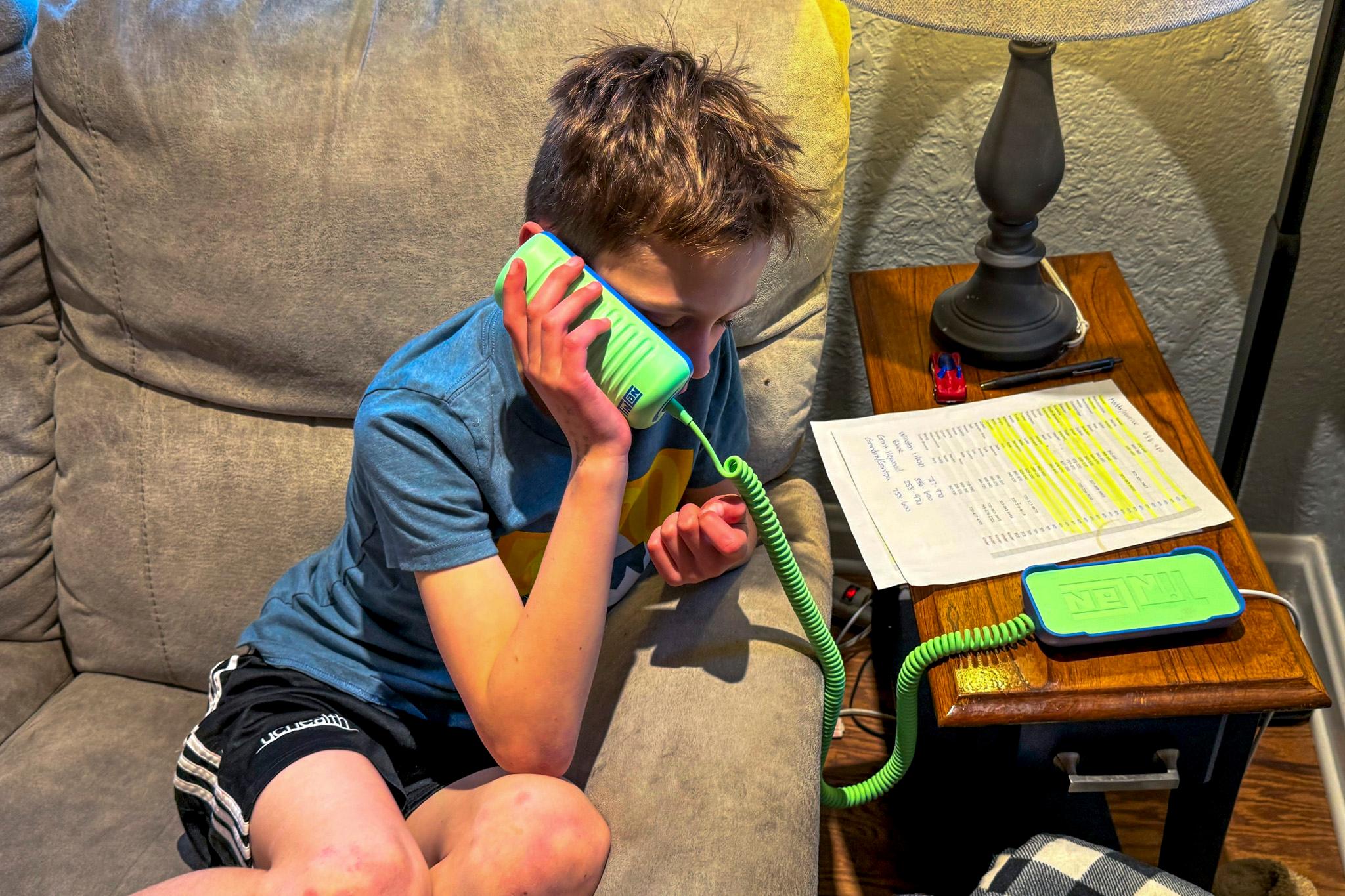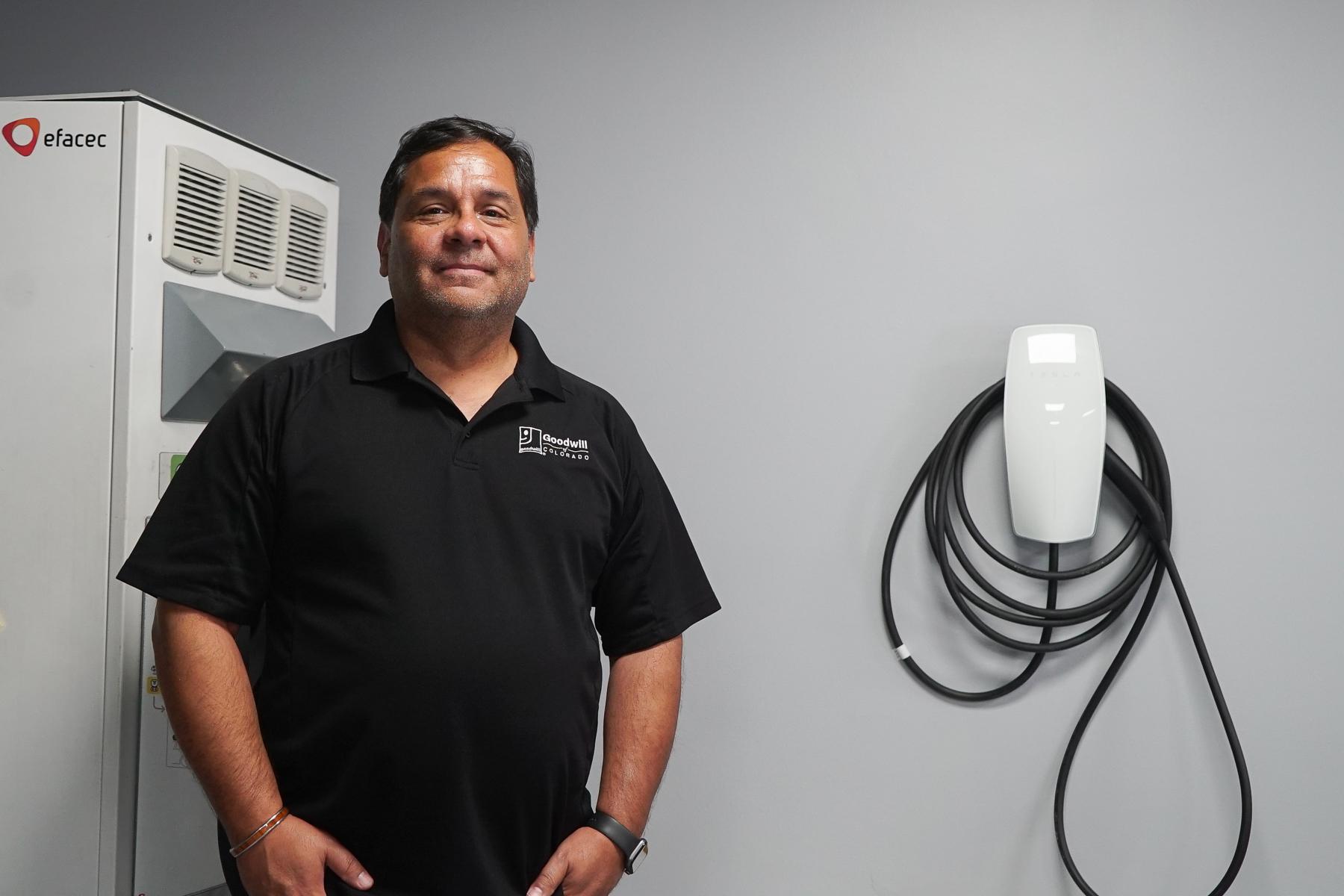
Last Tuesday, 15 trainees armed with electrical tools and wires hunched over work benches in an Aurora strip mall, about to begin “Crimpin’ My Style.”
Crimping — or attaching an electrical component to a wire — is a key skill when repairing electronics and electric vehicle chargers.
“Crimpin’,” on the other hand, is an exercise that’s part of Goodwill of Colorado’s new “Clean Tech Accelerator,” a four-week course in Aurora designed to prepare trainees to become EV charger technicians.
The program is part of a recent nationwide effort by Goodwill Industries International and the consulting firm Accenture to prepare thousands of workers for jobs in the green energy economy — whether that be repairing EV chargers or installing solar panels and heat pumps.
The Colorado version, which launched in July, is funded through Goodwill’s retail store sales and offers stipends, bus passes to get to the center, and job-placement help afterwards. The first cohort – who ranged from 20 to 50 years old – will graduate on Aug. 1.
Goodwill and its partners say that while installing EV chargers might require an electrician with years of experience, repairing them requires just a few weeks of training in a booming market.
“If you went to gas station after gas station … and they were all down because the pumps were broken, people would be furious,” said James Sanchez, director of education and training for Goodwill of Colorado.
“As people continue to purchase EV vehicles, they're gonna demand that those EV chargers are up and running all the time,” he said.
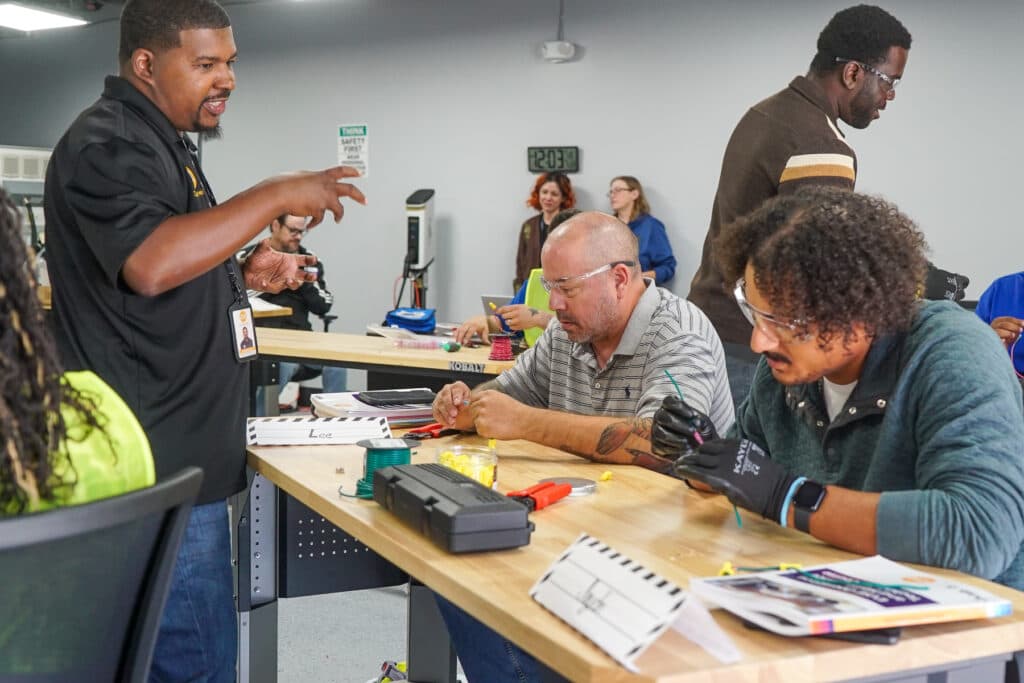
A report by Clean Jobs Colorado, an advocacy group, found that the state’s clean energy workforce — people who work on EVs, solar projects and more — grew at more than double the rate of the state’s overall job growth in 2023.
But that was before the second Trump administration, which has frozen funding for EV chargers, rolled back subsidies to buy EVs, and declared climate-friendly programs a “green new scam.” For now, Coloradans continue to buy EVs, and the state has more than 5,000 public EV charging plugs and counting.
“ I honestly don't feel like the industry is going anywhere,” said Brandon Smith, who led the “Crimpin” training.
Smith works for ChargerHelp, a company that focuses on maintaining EV chargers and developed the training curriculum.
“It’s a slight pause, but we're still gonna sit here and educate people so they can be ready for the future no matter what,” he said.
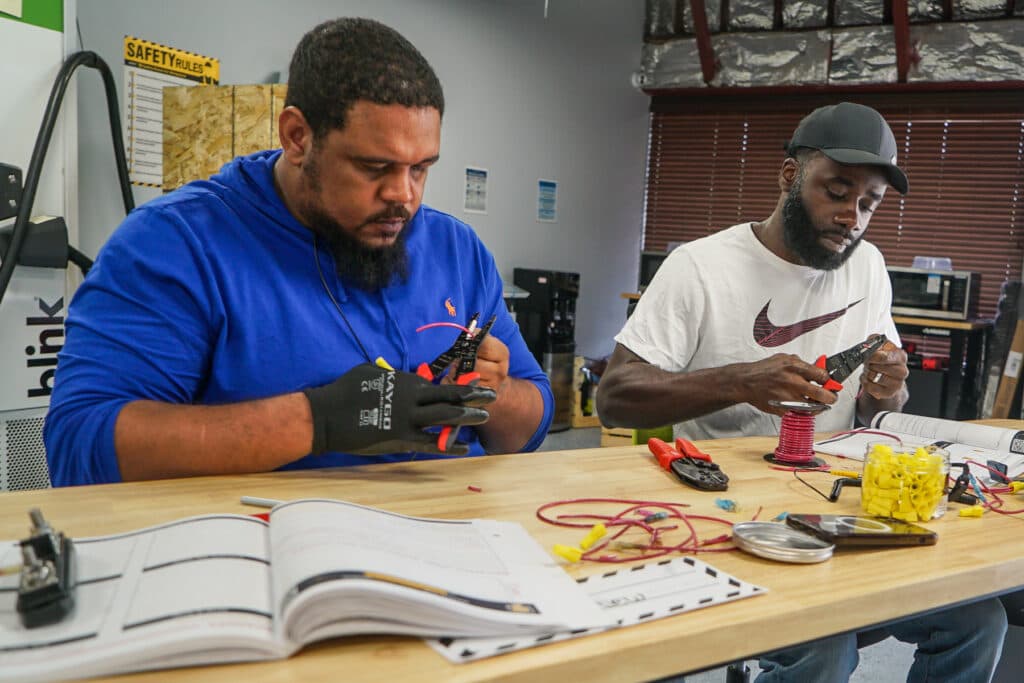
Jobs could pay $80K … if you can get one
The accelerator’s first week certifies trainees on CPR, workplace safety, and basic construction skills. The next three weeks dive into the literal nuts and bolts of fixing an EV charger.
Last week, trainees watched as Smith worked inside the guts of a hulking fast-charger installed in a classroom. Smith demonstrated how to use a torque wrench and recited some safety basics with the class.
“Lock-out, tag-out!” they yelled, referring to a way to “de-energize” chargers so technicians don’t get electrocuted.
The program is specifically aimed at Coloradans who are “underemployed, unemployed, unskilled but also interested in entering the trades industry,” Sanchez said.
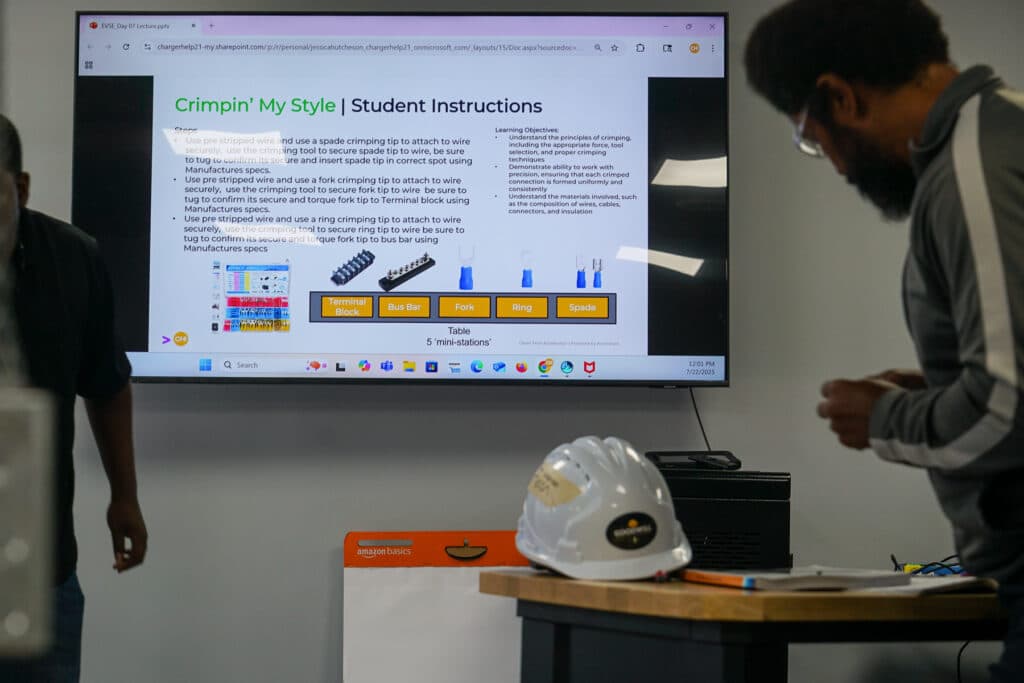
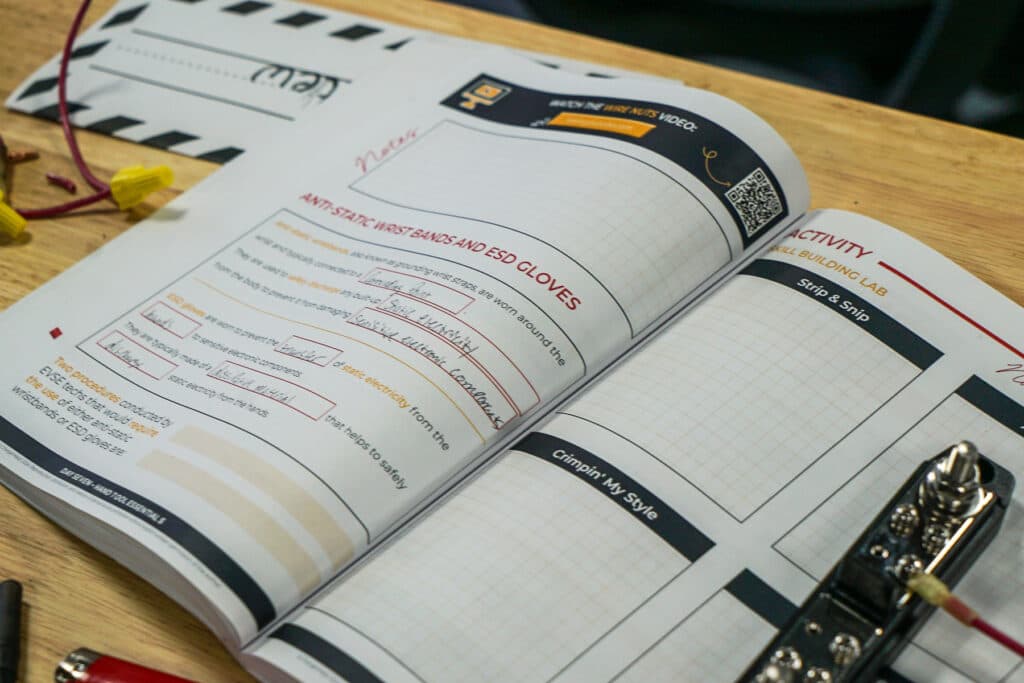
Goodwill of Colorado said in a press release that trainees could earn up to $80,000 as technicians after the course. A spokesperson later attributed that salary figure to a quote from ChargerHelp’s CEO.
Jessica Hutcheson, vice president of learning and development at ChargerHelp, said in an email to CPR News that technician salaries can range widely depending on the region, employer and type of work.
According to ZipRecruiter, the average salary is closer to $57,000 in Colorado, with $80,000 being the upper end and representing only three percent of such jobs.
Hutcheson wrote that ChargerHelp’s own full-time technicians start at $30/hour with benefits, and that technicians could earn $80,000 with a few years of experience in “high-demand markets and with overtime or specialized roles.”
Trainees will need additional certifications before they start working, though, because each charger manufacturer uses different software. Those additional sessions can take around a week or two each, according to Smith.
Program has mixed results, but Goodwill says job placements are growing
But despite the promise of high salaries, the program has had mixed success in other cities.
Goodwill Industries International launched the accelerator program in 2024 in Nashville, Detroit, Atlanta and Houston, backed by private funds mainly from Accenture and GM.
But a few months after those initial cohorts wrapped, less than 40 percent found work in clean energy jobs, according to a September 2024 report by Bloomberg News. That data excludes placements from Detroit.
In an email to CPR News, a spokesperson for Goodwill Industries International said it’s currently seeing placement rates closer to 70 percent in clean tech jobs across its programs, which have expanded to multiple other cities.
The Aurora accelerator ends with a graduation ceremony and a job fair, where companies including Namaste Solar, My Electric Home and the Colorado Building and Construction Trades Council can start interviewing trainees.
Sanchez said he hopes that around 75 percent of students will be placed in jobs within a year.
He said that rate is similar to other programs in Goodwill of Colorado’s Excel Center, which hosts the EV training and also operates a high school for adults.
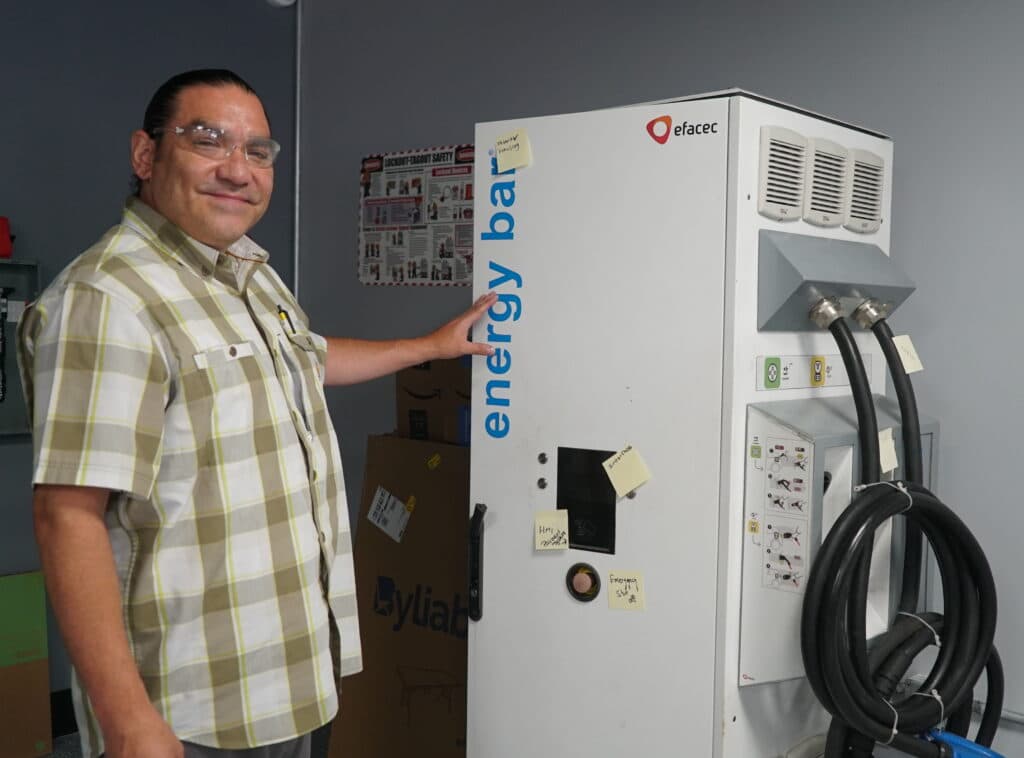
Benjamin Colorado Jr., a trainee in the program, graduated from the Excel Center high school a few weeks ago and was accepted into the accelerator. He previously worked on neon signs, so has some electrical experience, but said that working on EV chargers is “a whole different beast.”
Colorado Jr. said he was excited to become a technician, to diagnose issues with a charger as soon as he opens it.
“These EV stations are here to stay, and they need employees to go out there and fix them, and keep them maintenanced,” he said.





